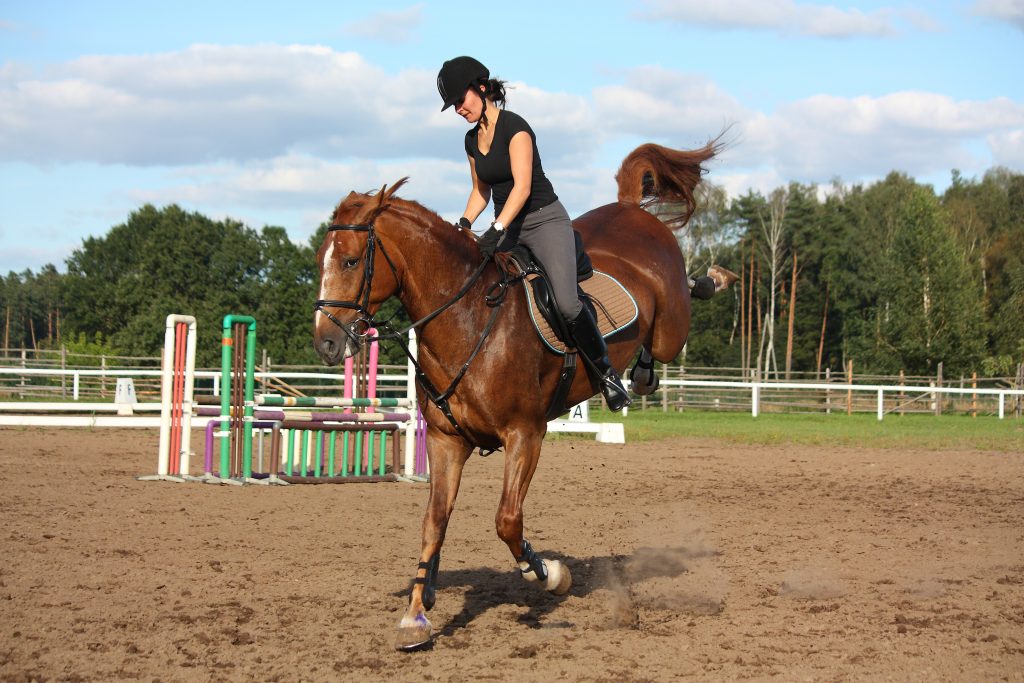Services
Pre-Purchase Examinations
Buying a horse can be a stressful business and you need to know that it is capable of fulfilling the role for which you need it. We will work with you, providing a thorough and honest assessment of any horse which you are considering purchasing. Using the latest X-Ray equipment and drawing on years of experience, we will give you peace of mind and assurance that you are buying the horse that is right for you.
Pre-purchase Examination (Vetting)
Buying a horse can be a stressful business and always carries some level of risk. However, a pre-purchase examination (“vetting”) can help minimise—though not completely eliminate—that risk. It provides an assessment of the horse at the time of examination, to assist the decision to purchase, or not, and is an indication, not a guarantee, of a horse’s suitability for intended use.
Before arranging a vetting, it is important to gather as much information about the horse as possible. We recommend, where feasible, that you see and ride the horse at least twice, ideally performing the type of work you plan for the horse in the future. Bringing along a knowledgeable friend or trainer can provide valuable input. Once you are confident that the horse meets your requirements, the next step is to arrange a pre-purchase examination (PPE), commonly known as a vetting.
Pre-Purchase Examination (PPE) Overview
The PPE is a detailed clinical assessment conducted on behalf of the prospective purchaser to evaluate veterinary factors that may influence the horse’s suitability for its intended purpose.
PPEs follow a standardised five-stage procedure outlined by the Royal College of Veterinary Surgeons (RCVS) and the British Equine Veterinary Association (BEVA). As the examining vet we act solely in the purchaser’s interest, tailoring our assessment and advice to the horse’s intended use. While the PPE helps buyers make informed decisions, it is not a guarantee of the horse’s future health or performance.
Key Considerations:
- Findings during the PPE may influence future insurance policies.
- Suitable facilities are required for the PPE, including a dark stable (for eye exams), flat and even surfaces for walking/trotting, lunging areas with soft and hard surfaces, and an appropriate exercise area (e.g., a school).
- All stages of the PPE may not be completed if the horse fails the examination at one of the early stages.



The 5-Stage Pre-Purchase Examination
- Stage 1: Preliminary Examination
- Thorough clinical evaluation at rest.
- Includes an identification sketch, passport check, and microchip verification (if applicable).
- Stage 2: Walk and Trot In-Hand
- Detects gait or action abnormalities.
- Includes flexion tests on all limbs and lunging on a firm surface.
- Stage 3: Exercise Phase
- Typically involves ridden exercise but can be conducted on a lunge for unbroken horses.
- Assesses respiratory and musculoskeletal responses to exercise.
- Stage 4: Rest and Re-Examination
- Horse rests quietly while heart and lungs are re-evaluated.
- Limbs are checked for swelling or other abnormalities caused by exercise.
- Stage 5: Second Trot-Up
- The horse is trotted in-hand again to identify any strains or injuries that became apparent during exercise and rest.
- Flexion tests may be repeated.
Results:
Our findings and opinion are shared verbally with the purchaser after the examination and documented in a written certificate.
2-Stage vs. 5-Stage PPE
- 5-Stage PPE:
Offers a comprehensive evaluation of the horse, providing more detailed information on potential issues. Strongly recommended for most purchases. - 2-Stage PPE:
Limited to the first two stages of the process. Buyers must sign a disclaimer acknowledging its limitations. Typically suited for specific scenarios where a full examination is not feasible.
Additional Testing and Blood Sampling
- Additional Diagnostics:
Radiography, endoscopy, or ultrasound can be performed based on the findings of the examination, or at the buyer’s request (additional costs apply). - Blood Samples:
- Can be stored for six months or tested immediately to detect substances that may
- mask health conditions.



Notes
- Disclosure of Clinical History:
If the vet is familiar with the horse, they will seek the vendor’s consent to share its clinical history with the purchaser. If consent is denied, the vet will decline to perform the PPE to ensure they act solely in the purchaser’s interest. - Buyers are advised to secure appropriate insurance coverage before completing the purchase. A full five-stage vetting is always recommended to ensure the best-informed decision. Many insurance companies require X-Rays for horses over a certain value (typically £10,000).
- We always advise that a pre-purchase examination should be performed by a veterinary surgeon/practice that has no prior knowledge of the horse and is not used by the current owner as there can be additional unfair pressures on the surgeon to pass the horse. This comes under the term “Conflict of Interest”.

Call to ask any question
01420 551 365
Equine Services
Your Trusted Equine Partner
Expert veterinary care for horses in Surrey, Hampshire and the surrounding areas.









